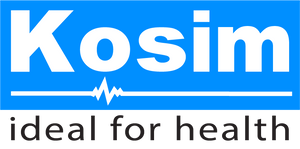Last updated on January 27, 2022
Can high cholesterol cause a stroke? Generally speaking, yes — high cholesterol is one of the leading causes of stroke. However, not all cholesterol is bad. In fact, the body needs a certain amount of cholesterol to function optimally.
To help you understand the link between high cholesterol and stroke, this article will discuss how cholesterol affects stroke risk as well as effective ways to manage cholesterol.
The Link Between High Cholesterol and Stroke
Cholesterol seems to have a bad reputation because it’s linked to many health risks, including the risk of stroke. But did you know that you need a certain amount of cholesterol to survive?
Cholesterol is a type of fat that’s found in all of the cells in your body. Some cholesterol is necessary to carry out essential functions in the body, such as producing vitamin D, bile acids, and hormones.
The liver produces all the cholesterol your body needs; however, cholesterol can also be found in the foods you eat. Cholesterol is generally attributed to foods that come from animals such as dairy and meat.
Consuming too much cholesterol can lead to plaque buildup in your arteries, including the ones in your brain that can cause a stroke. Plaque buildup makes it more difficult for blood to flow freely and increases the risk of clogging an artery. When this occurs in the brain, it is called an ischemic stroke.
For this reason, it’s imperative to manage high cholesterol to help prevent stroke.
However, not all cholesterol is bad! In the following section, we’ll clarify the differences between ‘good’ and ‘bad’ cholesterol and how they contribute to stroke risk.
‘Good’ vs. ‘Bad’ Cholesterol and Stroke Risk
There are two different types of cholesterol: HDL (high-density lipoproteins) and LDL (low-density lipoproteins). Both affect your risk of stroke in different ways.
LDL cholesterol is the ‘bad’ cholesterol that, when consumed in excess, can buildup on the walls of your arteries. Without proper management, it can progress into a condition called atherosclerosis. This is a major risk factor for stroke characterized by narrowing of the arteries.
On the other hand, HDL cholesterol is known as ‘good’ cholesterol. It acts as a healthy scavenger that carries bad LDL away from the arteries and into the liver where it’s broken down.
By taking proactive measures to reduce LDL and increase HDL cholesterol (which will be discussed later in this article), you can effectively reduce your chances of experiencing a stroke.
How to Lower High Cholesterol to Reduce Stroke Risk
If you have high cholesterol, it’s essential to make healthy lifestyle changes to reduce your risk of having a stroke. Even the most seemingly minor changes can have a significant effect on your overall health.
Below are some steps you can take to lower your cholesterol levels:
1. Adjust Your Diet
Adjusting your diet is one of the most effective lifestyle changes you can make to reduce high cholesterol and promote heart health.
Foods that are rich in soluble fiber can effectively lower cholesterol. Therefore, try eating more fiber-rich foods like beans, oats, fruits, and vegetables.
If you don’t have time to pack yourself some fiber-rich foods, then add some psyllium fiber (commonly known as Metamucil) to your diet. Try mixing it into a fruit smoothie for a double boost of vitamins and fiber.
Another highly effective way to lower LDL cholesterol levels is to limit your intake of saturated fats like butter, fatty red meat, and palm oil.
Also, keep an eye out for the ingredient ‘partially hydrogenated fat’ on your food labels. Labeling such that is usually code for a nasty, artery-clogging trans-fat that you should avoid completely.
2. Exercise Regularly
Increasing your physical activity level is another excellent way to lower cholesterol and reduce stroke risk.
Consistently engaging in physical activity increases HDL levels and prevents LDL cholesterol from accumulating in your arteries.
3. Maintain a Healthy Weight
Individuals who are overweight or obese tend to have greater LDL and lower HDL cholesterol.
By managing your diet and increasing your level of physical activity, you can achieve a healthy weight range and effectively reduce your risk both of high cholesterol and stroke.
4. Quit Smoking
There’s a strong correlation between smoking and cardiovascular disease. In fact, frequent smoking is associated with increased LDL cholesterol and decreased HDL cholesterol.
This study of 1,504 smokers found that quitting smoking resulted in increased HDL cholesterol. While significant changes in LDL cholesterol were not observed, the increase in HDL alone can significantly reduce one’s risk of cardiovascular disease.
5. Ask Your Doctor About Medications
Doctors may prescribe a medication called statins to help manage high cholesterol and stroke risk. Statins inhibit the production of LDL cholesterol in the liver and increase HDL levels.
Taking medication for high cholesterol is not a substitute for making healthy lifestyle changes. While medications can help lower cholesterol, developing healthy habits plays a crucial role in preventing certain health conditions such as obesity or heart disease.
High Cholesterol and Stroke: Key Points
Because high cholesterol is one of the leading causes of stroke, appropriate lifestyle management is essential.
High cholesterol increases plaque buildup in the arteries. When plaque accumulates in the arteries of the brain, there is a significant risk of clotting, which can cause a stroke.
By adopting a healthier lifestyle with the guidance of your doctor, you can safely and effectively lower high cholesterol and reduce your risk of having a stroke.

